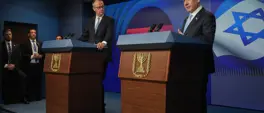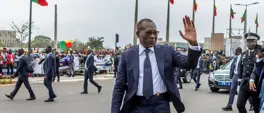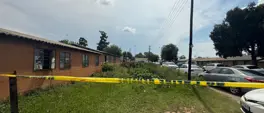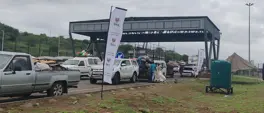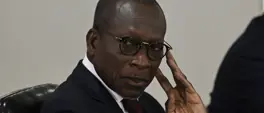MONDE NDLOVU: Youth are the jewels of democracy - but have no treasure
Monde Ndlovu
16 June 2023 | 10:00Not only do South Africa's youth grapple with poverty and unemployment, they are largely uneducated - but their potential can be unleashed if we nurture them, writes Monde Ndlovu.
Leadership remains a key cornerstone to building the kind of nation we want to be proud of.
Youth leadership development in particular ought to be at the centre of initiatives and opportunities, because by placing youth leadership development at the heart of economic development, we will be ensuring that our future and its prospects are shaped by leaders who understand both their context and responsibilities.
In the words of Lot Ndlovu, “do we teach the youth and challenge them to be keepers of their brothers and sisters, yet to be resourced, and in order to be resourced properly, through correct and wholesome means?”
The challenge posed by Ndlovu remains - what is being taught to young leaders, and do these teachings, including gaining resources through ethical behaviour and processes, have integrity as their main ingredient?
Youth leadership development should therefore be characterised by four E's; Education, Empowerment, Elevation, and Exposure. These four elements can form the basis of how we approach youth leadership development in the country.
Education as the first element pertains to both formal and informal.
Formal education is key in developing specific skill sets that are required to understand a certain discipline. Too many young leaders in their quest to make a difference do not spend sufficient time in understanding the need for formal education and how to align their abilities and mental aptitudes.
Youth need to champion a specialist agenda, where we begin to see more young people specialising in key fields. And these fields need to align to the key drivers of the country’s economy, and not diversify and have irrelevant skills.
According to Statistics South Africa’s latest GDP numbers for quarter 1 of 2023, finance, real estate and business services was the largest industry, currently contributing 23.6% to GDP.
This is followed by personal services at 16.7%, trade, catering and accommodation at 14.7%, and manufacturing at 13.7%.
Skills development therefore should be based on the key economic drivers of the country. As we speak, the South African population is painfully uneducated in key areas of that drive the economy.
According to the Department of Higher Education and Training’s Highest Level of Educational Attainment in South Africa June 2022 Report, looking at 4th quarter data from 2021, between the ages of 25 and 65 years, the following data is revealed: secondary education (grade 12 or equivalent) was at 31.9%, certificate was 3.3%, diploma at 5.4%, and degree was at 5.9%.
Amongst Black Africans, the numbers are not pleasing: secondary (grade 12 or equivalent) was 31.3%, certificate was 3.4%, diploma sat at 4.2%, and degree at 3.4%.
These numbers prove that we still have a long way to go to realise the dream of a highly skilled workforce, especially amongst Black Africans who make up the majority of the country’s population.
The informal education part speaks to learning from other sources, and learning in practice. The classroom in this context is anywhere and everywhere where knowledge can be gained and understood.
The best way to gain knowledge is through practical application of theory and observable principles. There’s a famous African proverb that says: "Boys learn by watching the back of their fathers.”
Young people, therefore, need to harness the informal space and learn widely from others and in practice.
With Empowerment as the second element, we need to appreciate that the South African society is largely characterised by poverty, unemployment, and inequality.
We remain of the most unequal societies in the world, meaning that economic power is enjoyed by few, which in South Africa’s case means wealth in the hands of few white people, even though a few black people have made some gains.
Therefore, policies, laws, and regulations are needed to spread opportunities and to reshape economic power.
Empowerment means creating external tools to uplift and redefine economic power in South Africa.
Economic transformation is an empowerment philosophy and framework to achieve socio-economic redress in an unequal society. Part of the toolkit of empowerment is the Broad-Based Black Economic Empowerment framework.
Zooming into enterprise development, the attitude of established businesses should be to create their own black competition in their respective industries.
If not, they should develop black-owned business in the industries that drive the economy. And at the heart of this approach should be youth-owned businesses.
This will also give established businesses the opportunity to transfer skills and expertise to these black-owned businesses.
This needs to be the next layer of engagement in South Africa, where businesses need to develop youth-owned businesses in industries that drive the economy, like banking and financial services.
In addition to this approach, the country needs to think more deeply about poverty, inequality and unemployment (PIU) targeting. Both government and business need to agree on PIU targeting and report quarterly on progress in this regard.
With Elevation as the fourth element, the youth need to be held in high regard as the jewels of democracy. The future of democracy belongs to the youth and their offspring.
Elevation also includes the challenge of recalibrating the thinking and mindset of young people. This is a daily task of beating the odds and remembering that we all come from greatness.
In the words of a song sung by Thandiswa Mazwai, “nilibele ukuthi nizalwa ngobani,” meaning, have you forgotten who birthed you? And as we remember where and who we come from, we elevate our mindset and dream beyond our forefathers.
With Exposure as the last element, this is to be intentional about bringing in young people into rooms and businesses to see how leadership operates at different levels in the economy.
When Singapore decided to turn around their fate it employed three values: Meritocracy, Pragmatism, and Honesty. Young people should be exposed to more models of success that can be adapted to our country.
The East has more examples of how they turned countries changed their fate, and the youth should be exposed to this.
South Africa could also embark on a leadership exchange programme, where our young leaders can learn from other economies, with the sole purpose of bringing back insights to adapt to our shores.
This Youth Leadership Development Model underpinned by the four E’s - Education, Empowerment, Elevation and Exposure - can further be developed, but the principles introduced in this article should spark the mind of the young.
South Africa’s spirit needs to be redefined and its pulse needs to beat differently. With an army of youth leaders, driven by these four E’s, can usher in a critical mass of young leaders who can change the spirit and soul of the nation.
As Ndlovu stated, we are our brothers' and sisters' keepers.
Monde Ndlovu is a consultant for African Leadership Development.
Get the whole picture 💡
Take a look at the topic timeline for all related articles.
Trending News
More in Opinion

5 December 2025 04:47
MANDY WIENER: Madlanga Inquiry reveals war between 'Hopedealers' and 'The Corrupt'

2 December 2025 12:00
TEGAN SNYMAN | Gender-based violence and femicide need to be treated as a true national crisis
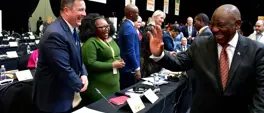
1 December 2025 13:55
JAMIL F. KHAN | GNU era exposes that corruption has no race and no party boundaries


